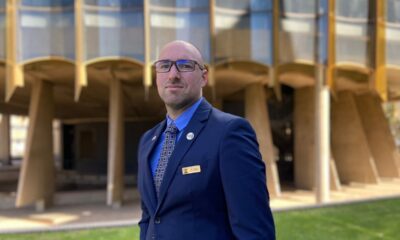
OpEds

How to take Johannesburg back from the brink
The terrible fire in Albert Street has re-focused our attention on the Joburg central business district (CBD), the city centre. The city centre enjoyed a revival from the early 2000s to about 2015, when the city’s leadership showed real commitment to the regeneration of the city, directed funding to the area, and worked with the private sector. Hundreds of millions of rand of private investment followed, especially in affordable housing, and to some extent in retail and office space. There was a palpable sense of excitement about the inner city, and a great deal of goodwill.
After the departure of Mayor Amos Masondo, however, the city’s leadership seemed to lose interest in the CBD. In the minds of many public leaders, the CBD became associated with foreign nationals. Aside from the terrible xenophobia of this idea, it’s simply inaccurate. The CBD is home to corporate head offices, numerous public institutions, trade unions, major universities, and schools. It provides the backbone of the public transport system, is a huge retail centre, and provides thousands of renovated and well-run affordable housing units to South Africans. Though foreign nationals are certainly part of the environment – as immigrants have always been – they remain a minority in all but a few pockets of the inner city.
The explosion in Bree Street in July and the fire in Albert Street in August are symptoms of neglect. And though Johannesburg’s problems aren’t limited to the inner city, they tend to manifest there because of the huge density of the area and the age of the infrastructure.
How do we address the urgent problems of the city as a whole and the CBD in particular? The first step is to improve the governance of the city. The instability and political chaos of the past few years have been very destructive. The city’s elected leaders seem to care more about the short-term success of their coalitions than they do about the fate of the city. Like any organisation, poor governance leads to a downward spiral.
If we’re able to improve the city’s governance, what should be done to address the problems of the CBD? Here are the priorities:
- Hijacked and dysfunctional buildings
There are hundreds of buildings in the same state as 80 Albert Street. The best way to address these is for the city to take over the building, offer temporary alternate accommodation to the occupants, and offer the buildings to private companies to renovate. The city used to do exactly this, through the Better Buildings Programme, which was discontinued by the city some years ago. It’s not an easy process and it requires skilled management, but it can be done.
- Electricity infrastructure
We need a seven to 10-year programme to rebuild our electrical substations, starting with the oldest and most vulnerable, and we need an ongoing programme to protect cables and other key transmission infrastructure. Priority should be given to the inner city substations which are the oldest, most densely used, and most vulnerable. This is especially so given that there has been such an increase in the provision of affordable housing units over the past two decades. The units provide decent living conditions for hundreds of thousands of people, but they increase the demand for power. Investment by the private sector requires investment by the public sector, especially in the area of infrastructure.
- Water and sewerage
The explosion in Lilian Ngoyi (Bree Street) demonstrates that when water pipes and sewers are severely neglected, there are serious consequences. Joburg Water needs a major programme to repair blocked and collapsed sewerage lines and water mains. In the long run, this will save the city money, as it loses so much fresh water due to leaking pipes.
- Transport infrastructure
The CBD is a transport hub for the city as a whole, and a major point of connection between the city and township residential areas. The taxi industry is the life-blood of the city, yet successive democratically elected administrations of Johannesburg have paid very little attention to its needs. We need larger taxi ranks, taxi ranks that are safe and secure for women, and we need to fix and manage key taxi routes such as Bree Street. We need to take a proper look at how taxis operate, especially in the inner city, and we need to invest in expanding the ranks and managing the routes. The city needs to work with the Passenger Rail Agency of South Africa to fix the train service between Soweto and the CBD. In addition to this, the Rea Vaya system should be completed. It works well between Johannesburg and Soweto. The CBD-Alexandra route needs to be completed and made operational.
- Homelessness
We must acknowledge that indigent and homeless people are part of our city, and provide at least some of their basic needs. A good start is to create public shower and toilet facilities in the CBD and in the informal settlements, and to manage these properly. Such facilities are offered in many cities, and while they are difficult to manage, they aren’t impossible. There are some outstanding non-governmental organisations already working in this space and they need support.
How do we do this?
At the national level, the chief executives of more than 115 companies have agreed to use their resources and expertise to help the national government address South Africa’s most urgent problems. It may be possible to do the same in Johannesburg. There are already some initiatives underway in this regard, but we need the city to embrace them. There’s still a great love for Johannesburg, and there are many people with extraordinary skills and commitment. With the right will and organisation, we can take our city back from the brink, and build a city that we can all be proud of.
- Lael Bethlehem is the former chief executive of the Johannesburg Development Agency. She’s currently Chief ESG Officer at Sedibelo Resources, a platinum mining company, where she’s responsible for driving its social, environmental, and energy programmes.











Andrew Buten
September 15, 2023 at 12:34 pm
Lael thank you; your article was concise, practical and a pleasure to read. I have two small commercial buildings in the JHB CBD tenanted by micro businesses. The buildings are directly opposite the old central JHB fire station in Kruis street. This old central fire station building was declared unsafe by the city a few years back. After a period of time the city withdrew their security guards who were protecting the building leaving it abandoned. Since then, desperate vagrants entered the building and are currently living there under extremely unsafe conditions (as declared by the city) If nothing gets done the building is headed toward the same horrific fate as the one in Albert Street. I would like very much to reach out to any person and or company to come up with a possible solution to the problem. I have been unsuccessful up until now in getting any sustainable action from the city of JHB. Baruch Hashem it will result in an actionable solution to ensure the people living in the old fire station do not suffer the same horrific fate as the building in Albert Street. Shana Tovah